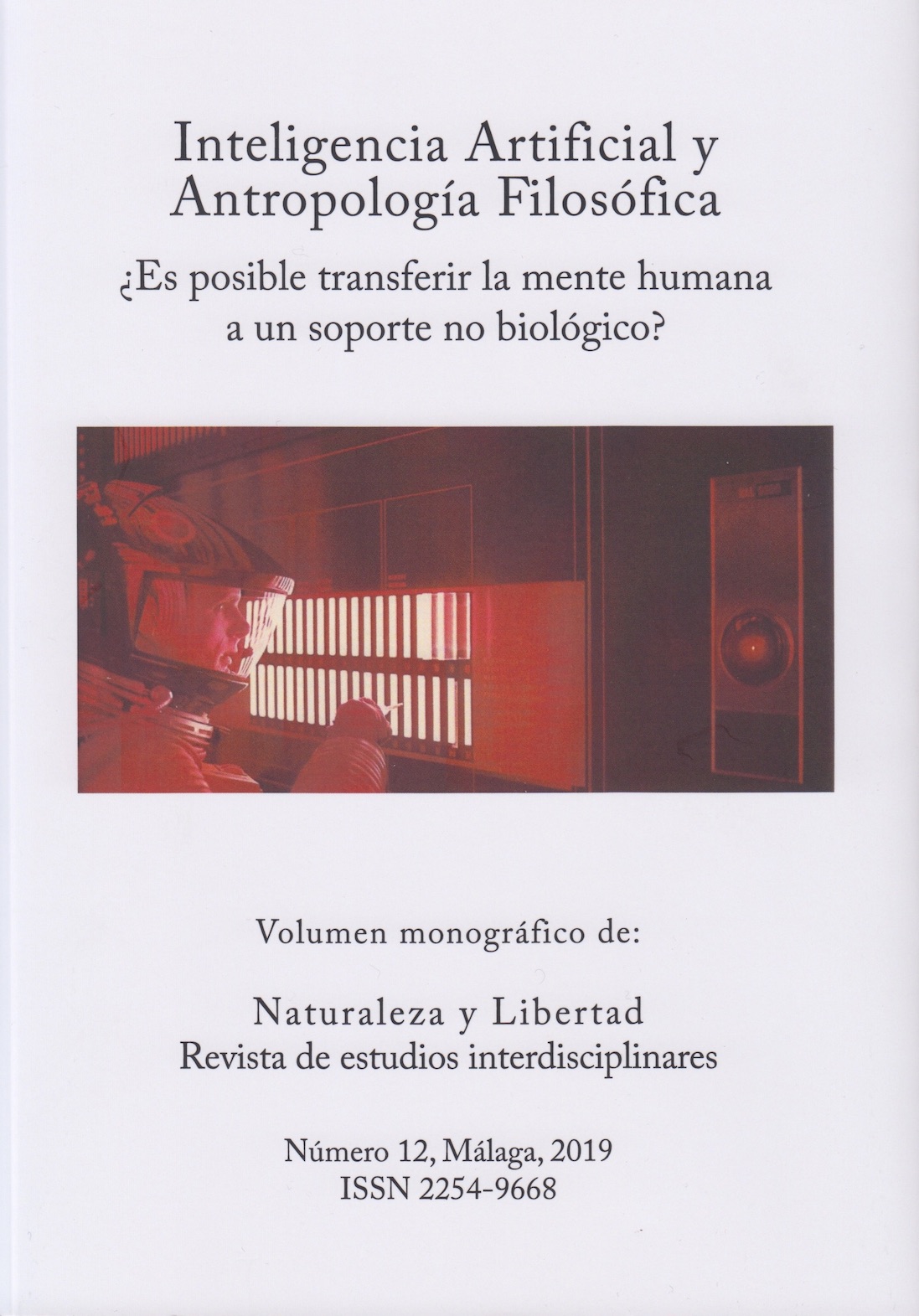Mente humana y voluntad
DOI:
https://doi.org/10.24310/NATyLIB.2019.v0i12.6270Keywords:
mente humana, voluntad, Aristóteles, Plotino, Agustín de Hipona, Anselmo de CanterburyAbstract
Frente al tradicional análisis de la mente humana como inteligencia, se defiende la consideración de la voluntad como componente esencial de la mente humana. En concreto se estudia el origen de la distinción entre naturaleza y voluntad, a partir de algunos textos de Aristóteles, Plotino, Agustín de Hipona y Anselmo de Canterbury.Downloads
Metrics
References
Agustín de Hipona, Obras, Madrid, BAC, 1946, 22 vols.
Alejandro de Afrodisias, Acerca del alma, Gredos, Madrid, 2013.
Anselmo de Canterbury, Obras completas, Madrid, BAC, 1952, 2 vols.
Aristóteles, Acerca del alma, Madrid, Gredos, 1994.
Aristóteles, Ética a Nicómaco, Instituto de Estudios Políticos, Madrid, 1970.
J. de Garay, “La unidad de la conciencia en los comentadores griegos de Aristóteles”, en: Contrastes, 2017 (XXII, 3): 51-74
Juan Filopón, In Aristotelis De anima libros commentaria, Berlín, Academiae Litterarum Regiae Borussicae, 1897.
Plotino, Enéadas, Madrid, Gredos.
Proclo, In Alcibiades. Simplicio, In libros Aristotelis De anima commentaria, Berlín, Academiae Litterarum Regiae
Borussicae, 1882.
Downloads
Published
How to Cite
Issue
Section
License
Those authors who have publications with this journal, accept the following terms:
1. Copyright and licensing information are clearly described on the journal’s web site: all content published in Naturaleza y Libertad is open acces without limit, and are subject to the Attribution-NonCommercial-ShareAlike 4.0 International (CC BY-NC-SA 4.0) license. The full text of which can be consulted at https://creativecommons.org/licenses/by-nc-sa/4.0/
2. It is the responsibility of the authors to obtain the necessary permissions for the images that are subject to copyright. The authors whose contributions are accepted for publication in this journal will retain the non-exclusive right to use their contributions for academic, research and educational purposes, including self-archiving or deposit in open access repositories of any kind. The electronic edition of this magazine is edited by the Editorial de la University of Malaga (UmaEditorial), being necessary to cite the origin in any partial or total reproduction.
3. This journal allows and encourages authors to publish papers on their personal websites or in institutional repositories, both before and after their publication in this journal, as long as they provide bibliographic information that accredits, if applicable, your posting on it.
4. In no case will anonymous papers be published.





18.png)













